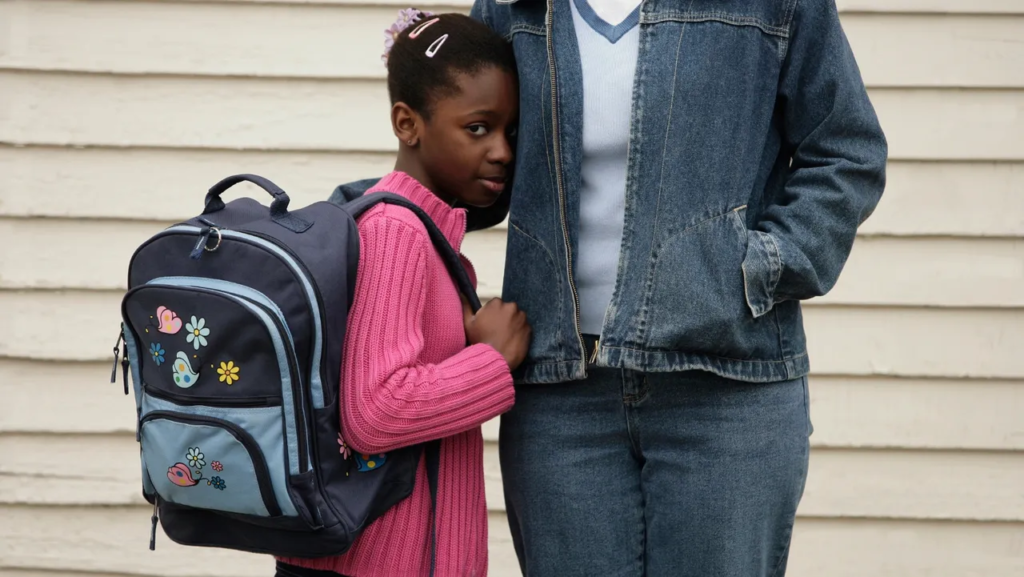Three Social Skills Every Child Should Have
Originally published on the I Earned It Blog.

Tips for Helping Your Children Improve Their Social Skills
We always want the best for our children, and with back-to-school season readily approaching, we can be apprehensive about our children’s social skills and making friends. While we can’t wave a wand and make our children have excellent social skills and be the most popular kid on the playground, we can help them practice their social skills.
A study by the Robert Wood Johnson Foundation suggests that kindergartners who do well with sharing, cooperating, and helping others are more likely to become successful adults with higher education and well-paying jobs than children who struggle with social skills. So, to set our kids up for successfully making friendships, we can help them with the skills above. Here’s how:
1. Sharing
Sharing is one of the most important skills we use in life. We share all the time as adults, whether telling a story or grabbing a cup of coffee for a friend. So naturally, we want our children to share and be ‘good sharers.’
A study in the Psychological Science Journal concluded that allowing children to make the difficult decision to share instead of keeping something to themselves makes them more generous later. So, while we all want children to be good at sharing, they are more likely to share when we don’t force them to.
We help children learn to share by modeling sharing, offering them the choice to share or not, and celebrating good sharing. Modeling sharing for children can be as simple as verbalizing when you share with someone. While offering children the choice to share or not can be more complex, it can be done by not pressuring your child to share. For example, if you ask your child to share a toy with a friend and they say “no, thank you,” you can help the friend find a toy to play with until your child is done with their toy. If your child does decide to share, you should celebrate it by telling them you are proud of them and love how they share.
2. Cooperating
The ability to cooperate and follow directions is an essential social skill. We practice cooperation all the time, when we complete an activity for school or work or when helping a friend or partner. Understanding cooperation enables us to be better listeners and execute tasks accurately.
A study in the Social Development journal reveals that children better at cooperating with their peers are likelier to be more likable to their peers. The study defined cooperation as “action coordination” and “interaction quality.” Simply put, children will have an easier time being liked—and thus making friends—if they do well with completing the actions asked of them and are easy to interact with.
Getting children to follow directions can be challenging, but it doesn’t have to be. Playing games like Simon Says or Red Light, Green Light are fun yet effective ways to teach children about listening and following directions. In addition, the more often children interact with peers, the easier it is for them to interact with others. Allowing children to participate in playdates or even video chats with peers can help them to develop the skills they need to interact and respond appropriately to peers.
3. Empathy
According to Educational Psychologist Michele Borba, empathy consists of three parts: affective empathy–sharing feelings with others, behavioral empathy—when we act compassionately, and cognitive empathy—when we understand how others are feeling.
We can help children build empathy skills by talking about their feelings, engaging in acts of kindness, and teaching them to recognize how their actions affect others. Explaining to children what different emotions are and asking them to name their emotions when they are experiencing them can help them understand their feelings. When your child is upset, ask them to talk to you about their feelings and how the two of you can work together to manage their emotions.
Moreover, having your children engage in acts of kindness can help them understand the benefits of helping others. For example, they can try activities like complimenting a friend or bringing their teacher a gift. As children understand their emotions and practice acts of kindness, they will learn how their positive attitudes impact others. Additionally, when children behave negatively, asking them how they would feel if the roles were reversed can help them understand how their actions affect others.